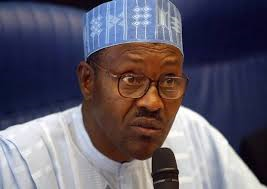2015 Presidency: The Choices Before APC Stakeholders
 |
| Buhari |
| Atiku |
There is no debate that the All
Progressives Congress(APC) presidential ticket will be the most keenly
contested ahead of the 2015 general elections. The reason is obvious. A contest
that has the former head of state and the masses favourite General Muhammadu
Buhari, former vice president and astute political tactician, Alhaji Atiku
Abubakar and Kano State’s performing governor, Engineer (Dr) Rabiu Kwankwaso
among others would be a major headache to APC stakeholders to make a choice
that would satisfy everyone because the aforementioned politicians have those
who fanatically support them.
If former head of state General
Muhammadu Buhari is picked by the stakeholders either at the party’s primary or
consensus meeting, he is one candidate that would pose a big challenge to
President Goodluck Jonathan and the ruling Peoples Democratic Party(PDP). Buhari’s
name on the ballot is likely to guarantee victory for APC in most states of the
North East, North West and even parts of the North Central especially in Niger
State, where Buhari beat Jonathan by a wide margin in 2011. In Buhari the APC
has an aspirant who garnered over 12 million votes without the financial muscle
of the ruling party, and who with the financial backing of about 10 states
under APC can give Jonathan a run for his money. Buhari is also running on the
strength of his integrity and anti-corruption record against a President
Jonathan that has been accused of doing little or nothing to reign in alleged
corrupt officials in his government.
In choosing Buhari, the APC has also
to be mindful of his drawbacks as a candidate. He has been accused of being a
religious fanatic who allegedly told his supporters who are mostly Muslims to
only vote for Muslim candidates. Even though the General has denied this, there
are many who still hold it against him in a country where religion is a
sensitive issue and Jihadist groups like Boko Haram are on prowl. Buhari’s
chances is not helped by the branding of the APC as a Janjaweed party by the
PDP largely because of alleged utterances of Buhari and some of his supporters.
Alhaji Atiku Abubakar, former vice
president who had a tumultuous relationship with his principal, President
Olusegun Obasanjo between 1999 and 2007 will be contesting for president for
the second time if he is chosen as the presidential candidate of the APC this
year. He was the presidential candidate of the Action Congress(AC) in 2007
where he lost to the eventual winner, late President Umaru Musa Yar’Adua. A
founding member of the ruling PDP he returned to the party in 2011 to challenge
President Goodluck Jonathan for the PDP ticket. Even though he was able to
defeat political heavy weights like former head of state, General Ibrahim
Babangida to emerge the northern consensus candidate to fight for the PDP
ticket with Jonathan, he lost the primary to Jonathan, losing even his Adamawa
State’s delegates’ votes. However if he is to emerge the candidate of APC he is
believed to have the financial muscle to challenge the PDP. He is also believed
to have structures all over the country to work for his victory. He is also
viewed as a detribalised Nigerian who is not fanatical over religion. In fact in
the letter he wrote to Buhari welcoming him to the presidential contest Atiku
pointedly wrote that Nigeria does not need a religious fanatic as president.
The former vice president may however
be a hard sale for APC which seems to hinge its campaign on anti-corruption
allegations against the PDP and President Goodluck Jonathan who the party had
labelled his government as the most corrupt administration in the history of
the country. This is because Atiku has some corruption allegations hanging over
his head as vice president, where his principal, President Olusegun Obasanjo
accused him of all manners of corruption, some of which was investigated by the
National Assembly. It remains to be seen how Atiku can challenge Jonathan over
anti-corruption issues when his records was not all that blameless.
The governor of Kano State, Alhaji
Rabiu Kwankwaso is among the G7 Governors; that is governors of the PDP who
protested against the way the party was going especially the desire by
President Goodluck Jonathan to seek a second term in 2015 against the alleged
gentleman agreement in 2011 that he would do only one term. He moved over to
the APC where he has declared interest to contest for president. He is
presently consulting stakeholders of APC and others including Christian leaders
in the southern parts of the country soliciting their support. In terms of
performance in office, many would attest that he has lifted Kano State to a
level where it is the envy of other states especially in the north where the
state remains the only state in the north that can pay salaries without
depending on allocation from Abuja.
Kwankwaso’s biggest drawback is that
he is contesting against two of the biggest political giants in the north today
who also have rich CVs on presidential primaries and campaigns and may only be
considered if the stakeholders need a new order. Aside that, Kwankwaso like
Atiku is a new entrant to APC, and there are many who may use that against the
two aspirants who may be seen as being too desperate to take over what ‘rightly
belong’ to founding members of APC. As a serving governor there may be enough ‘ammunition’
for the ruling PDP to use against him by unleashing the anti-corruption agency,
the Economic and Financial Crimes Commission (EFCC) against him. Recently
President Jonathan accused Kwankwanso of allegedly diverting local government
allocations of the state. If he emerges the APC candidate this and other
corruption issues may come to the front burner.


Comments
Post a Comment